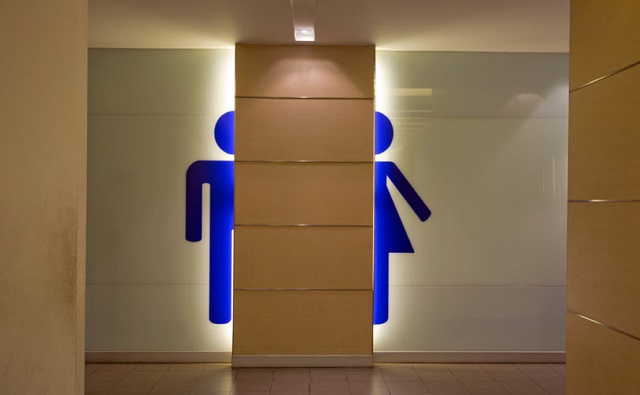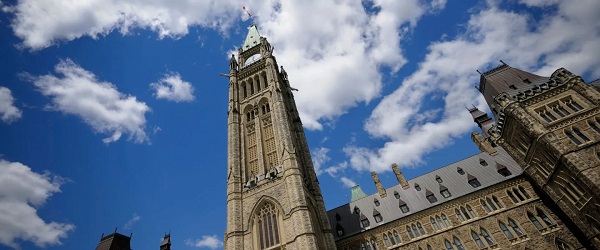Business
Ottawa must listen to the West
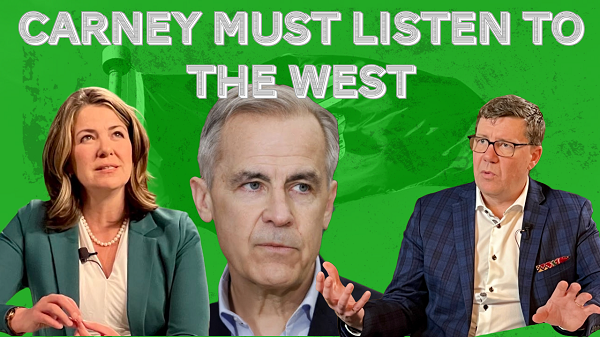
If Prime Minister Mark Carney doesn’t listen to the West, it’s going to cost Canada.
Alberta Premier Danielle Smith and Saskatchewan Premier Scott Moe are demanding that Ottawa stop stomping on their provinces’ natural resource production.
Smith is telling Carney to scrap the no more pipelines law, Bill C-69, lift the cap on Alberta’s energy and cancel the looming ban on the sale of new gasoline and diesel vehicles.
Moe is stepping in sync with Smith, listing Saskatchewan’s demands in a letter, calling for changes to the no more pipelines law, saying, “there are a few policies that are going to have to go.”
Moe is also taking aim at the industrial carbon tax saying “the tax can’t be charged on the electricity for Saskatchewan families.”
The new prime minister says he’s listening.
“I intend to govern for all Canadians,” said Carney in his election victory speech.
If that’s true, Carney must heed the demands of Smith and Moe, because Ottawa’s anti-West policies are damaging the economy and costing taxpayers a truckload of money.
How much?
Ottawa’s cap on oil and gas emissions – which creates a cap on production – will cost the Canadian economy about $20.5 billion and slash 40,000 jobs by 2032, according to the Parliamentary Budget Officer.
Canada has also seen nearly $670 billion in natural resources projects suspended or cancelled, since 2015.
To put that kind of money into perspective: $670 billion would pay for the salaries of hundreds of thousands of paramedics and police officers, for a decade.
That’s the equivalent to the value of more than one million houses in Alberta or almost two million homes in Saskatchewan.
That kind of money is worth the entire income tax bills for the populations of Alberta, Saskatchewan and Manitoba for about 10 years.
That’s just the lost money from natural resources.
Carney’s looming ban on the sale of new gasoline and diesel vehicles also has a huge price tag.
Canada’s vehicle transition could cost up to $300 billion by 2040 to expand the electrical grid, according to a report for Natural Resources Canada.
If Carney is serious about boosting the economy and governing for all Canadians, getting the government out of the way of natural resource projects and scrapping the expensive plan to stop people from buying new gas and diesel vehicles is a good first step.
The West has been firmly asking for Ottawa to mind its own business for years.
Cancelling the industrial carbon tax is another way for Carney to show that he’s serious about growing the economy and governing for all Canadians.
On the same day Carney scrapped the consumer carbon tax, the Saskatchewan government dropped its industrial carbon tax down to zero.
“By eliminating industrial carbon costs which are often passed directly on to consumers – the province is acting to protect affordability and economic competitiveness,” said the Saskatchewan government’s news release.
Alberta’s industrial carbon tax is now frozen. Increasing the tax above its current rate would make Alberta “exceptionally uncompetitive,” according to Alberta Environment Minister Rebecca Schulz.
Business groups in both provinces lauded each premier, saying it would make their industries more competitive and help bring down costs.
When Ottawa forces businesses like fuel refineries or fertilizer plants to pay the carbon tax, they pass on those costs on to taxpayers when they heat their homes, fill up their cars and buy groceries.
If companies are forced to cut production or leave the country because of the industrial carbon tax and policies like the energy cap, it’s regular Albertans and Saskatchewanians who are hurt the most through job losses.
If Carney intends to govern for all Canadians he needs to listen to Smith and Moe and scrap these policies that are set to cost taxpayers billions and slash tens of thousands of jobs.
Kris Sims is Alberta Director and Gage Haubrich is Prairie Director for the Canadian Taxpayers Federation.
Business
This Sunday, June 8, is Tax Freedom Day, when Canadians finally start working for themselves

From the Fraser Institute
By Milagros Palacios, Jake Fuss and Nathaniel Li
This Sunday, June 8, Canadians will celebrate Tax Freedom Day, the day in the year when they start working for themselves and not government, finds a new study published by the Fraser Institute, an independent, non-partisan Canadian public policy think-tank.
“If Canadians paid all their taxes up front, they would work the first 158 days of this year before bringing any money home for themselves and their families,” said Jake Fuss, director of fiscal studies at the Fraser Institute.
Tax Freedom Day measures the total annual tax burden imposed on Canadian families by federal, provincial, and municipal governments.
In 2025, the average Canadian family (with two or more people) will pay $68,266 in total taxes. That’s 43.1 per cent of its annual income ($158,533) going to income taxes, payrolltaxes (including the Canada Pension Plan), health taxes, sales taxes (like the GST), property taxes, fuel taxes, “sin” taxes and more.
Represented as days on the calendar, the total tax burden comprises more than five months of income—from January 1 to June 7. On June 8th—Tax Freedom Day—Canadians finally start working for themselves, and not government.
But Canadians should also be worried about the nearly $90 billion in deficits the federal and provincial governments are forecasting this year, because they will have substantial tax implications in future years.
To better illustrate this point, the study also calculates a Balanced Budget Tax Freedom Day—the day of the year when the average Canadian finally would finally start working for themselves if governments paid for all of this year’s spending with taxes collected this year.
In 2025, the Balanced Budget Tax Freedom Day won’t arrive until June 21. “Tax Freedom Day helps put the total tax burden in perspective, and helps Canadians understand just how much of their money they pay in taxes every year,” Fuss said. “Canadians need to decide for themselves whether they are getting their money’s worth when it comes to how governments are spending their tax dollars.”
Tax Freedom Day for each province varies according to the extent of the provincially and locally levied tax burden.
2025 Provincial Tax Freedom Days
Manitoba May 17
Saskatchewan May 31
British Columbia May 31
Alberta May 31
Prince Edward Island June 2
New Brunswick June 4
Ontario June 7
Nova Scotia June 10
Newfoundland & Labrador June 19
Quebec June 21
CANADA June 8
Canadians Celebrate Tax Freedom Day on June 8, 2025
- In 2025, the average Canadian family will earn $158,533 in income and pay an estimated $68,266 in total taxes (43.1%).
- If the average Canadian family had to pay its taxes up front, it would have worked until June 7 to pay the total tax bill imposed on it by all three levels of government (federal, provincial, and local).
- This means that Tax Freedom Day, the day in the year when the average Canadian family has earned enough money to pay the taxes imposed on it, falls on June 8.
- Tax Freedom Day in 2025 comes one day earlier than in 2024, when it fell on June 9. This change is due to the expectation that the total tax revenues forecasted by Canadian governments will increase slower than the incomes of Canadians.
- Tax Freedom Day for each province varies according to the extent of the provincially levied tax burden. The earliest provincial Tax Freedom Day falls on May 17 in Manitoba, while the latest falls on June 21 in Quebec.
- Canadians are right to be thinking about the tax implications of the $89.4 billion in projected federal and provincial government deficits in 2025. For this reason, we calculated a Balanced Budget Tax Freedom Day, the day on which average Canadians would start working for themselves if governments were obliged to cover current expenditures with current taxation. In 2025, the Balanced Budget Tax Freedom Day arrives on June 21.
Business
Carney’s Energy Mirage: Why the Prospects of Economic Recovery Remain Bleak
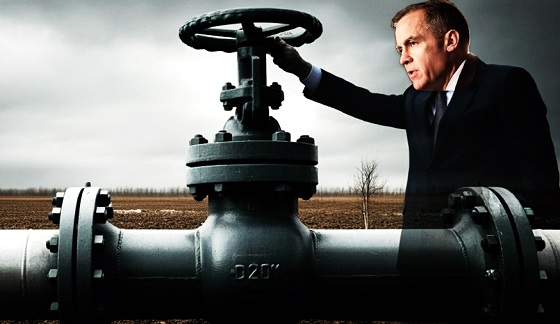
 By Gwyn Morgan
By Gwyn Morgan
Gwyn Morgan argues that Mark Carney, despite his polished image and rhetorical shift on energy, remains ideologically aligned with the Trudeau-era net-zero agenda that stifled Canada’s energy sector and economic growth. Morgan contends that without removing emissions caps and embracing real infrastructure investment, Canada’s recovery will remain a mirage — not a reality.
Pete Townshend’s famous lyrics, “Meet the new boss / Same as the old boss,” aptly describe Canada’s new prime minister. Touted as a fresh start after the Justin Trudeau years, Mark Carney has promised to turn Canada into a “clean and conventional energy superpower.” But despite the lovey-dovey atmosphere at Carney’s recent meeting with Canada’s premiers, Canadians should not be fooled. His sudden apparent openness to new energy pipelines masks a deeper continuity, in my opinion: Carney remains just as ideologically committed to net-zero emissions.
Carney’s carefully choreographed scrapping of the consumer carbon tax before April’s election helped reduce gasoline prices and burnished his centrist image. In fact, he simply moved Canada’s carbon taxes “upstream”, onto manufacturers and producers, where they can’t be seen by voters. Those taxes will, of course, be largely passed back onto consumers in the form of higher prices for virtually everything. Many consumers will blame “greedy” businesses rather than the real villain, even as more and more Canadian companies and projects are rendered uncompetitive, leading to further reductions in capital investment, closing of beleaguered factories and facilities, and lost jobs.
This sleight-of-hand is hardly surprising. Carney spent years abroad in a career combining finance and eco-zealotry, co-founding the Glasgow Financial Alliance for Net Zero (GFANZ) and serving as the UN’s Special Envoy for Climate Action and Finance. Both roles centred on pressuring institutions to stop investing in carbon-intensive industries – foremost among them oil and natural gas. Now, he speaks vaguely of boosting energy production while pledging to maintain Trudeau’s oil and natural gas emissions cap – a contradiction that renders new pipeline capacity moot.
Canada doesn’t need a rhetorical energy superpower. It needs real growth. Our economy has just endured a lost decade of sluggish overall growth sustained mainly by a surging population, declining per-capita GDP and a doubling of the national debt. A genuine recovery requires the kind of private-sector capital investment and energy infrastructure that Trudeau suppressed. That means lifting the emissions cap, clearing regulatory bottlenecks and building pipelines that connect our resources to global markets.
We can’t afford not to do this. The oil and natural gas industry’s “extraction” activities contribute $70 billion annually to Canada’s GDP; surrounding value-added activities add tens of billions more. The industry generates $35 billion in annual royalties and supports 900,000 direct and indirect jobs. Oil and natural gas also form the backbone of Canada’s export economy, representing nearly $140 billion per year, or about 20 percent of our balance of trade.
Yet Quebec still imports oil from Algeria, Saudi Arabia and Nigeria because Ottawa won’t push for a pipeline connecting western Canada’s producing fields to Quebec and the Maritimes. Reviving the cancelled Energy East pipeline would overcome this absurdity and give Canadian crude access to European consuming markets.
Carney has hinted at supporting such a project but refuses to address the elephant in the room: without scrapping the emissions cap, there won’t be enough production growth to justify new infrastructure. So pipeline CEOs shouldn’t start ordering steel pipe or lining up construction crews just yet.
I continue to believe that Carney remains beholden to the same global green orthodoxy that inspired Trudeau’s decade of economic sabotage. While the United States shifts course on climate policy, pulling out of the Paris Accord, abandoning EV mandates and even investigating GFANZ itself, Canada is led by a man at the centre of those systems. Carney’s internationalist career and personal life – complete with multiple citizenships and a spouse known for environmental activism – underscore how far removed he is from ordinary Canadians.
Carney’s version of “clean energy” also reveals his bias. Despite the fact that 82 percent of Canada’s electricity already comes from non-greenhouse-gas-emitting sources like hydro and nuclear, Carney seems fixated on wind and solar-generated power. These options are less reliable and more expensive – though more ideologically fashionable. To climate zealots, not all zero-emission energy is created equal.
Even now, after all the damage that’s been done, Canada has the potential to resume a path to prosperity. We are blessed with vast natural resources and skilled workers. But no economy can thrive under perpetual policy uncertainty, regulatory obstruction and ideological hostility to its core industries. Energy projects worth an estimated $500 billion were blocked during the Trudeau years. That capital won’t return unless there is clarity and confidence in the government’s direction.
Some optimists argue that Carney is ultimately a political opportunist who may shift pragmatically to boost the economy. But those of us who have seen this movie before are sceptical. During my time as a CEO in the oil and natural gas sector, I witnessed Justin’s father Pierre Trudeau try to dismantle our industry under the guise of progress. Carney, despite or perhaps because of his polish, may be the most dangerous of the three.
The original, full-length version of this article was recently published in C2C Journal.
Gwyn Morgan is a retired business leader who was a director of five global corporations.
-

 Business1 day ago
Business1 day agoCarney’s Energy Mirage: Why the Prospects of Economic Recovery Remain Bleak
-

 Business2 days ago
Business2 days agoThe world needs energy. Canada has the supply. Other nations eagerly fill the demand.
-

 Business2 days ago
Business2 days agoTo Build BIG THINGS Canada Needs to Rid Itself of BIG BARRIERS
-
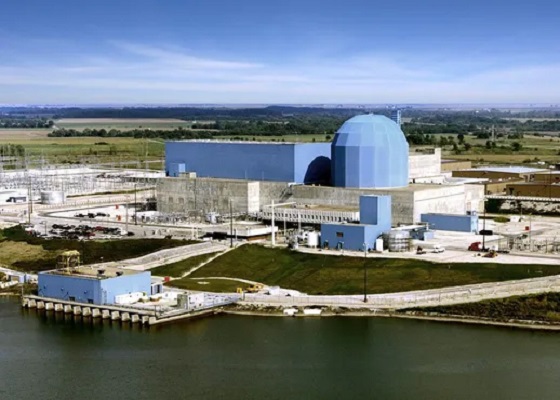
 Business2 days ago
Business2 days agoMeta inks 20 year deal for nuclear power
-

 Alberta2 days ago
Alberta2 days agoAlberta Sports Hall of Fame to Induct Class of 2025
-

 Crime2 days ago
Crime2 days agoBoulder ‘terror’ suspect’s family in ICE custody, pending deportation
-
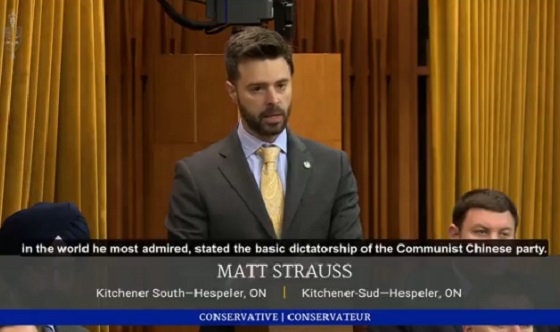
 National1 day ago
National1 day agoCensured doctor who’s now a Conservative MP calls COVID mandates ‘full Communism’
-

 Daily Caller1 day ago
Daily Caller1 day agoLiberals Embrace Islamic Extremism In Canada








